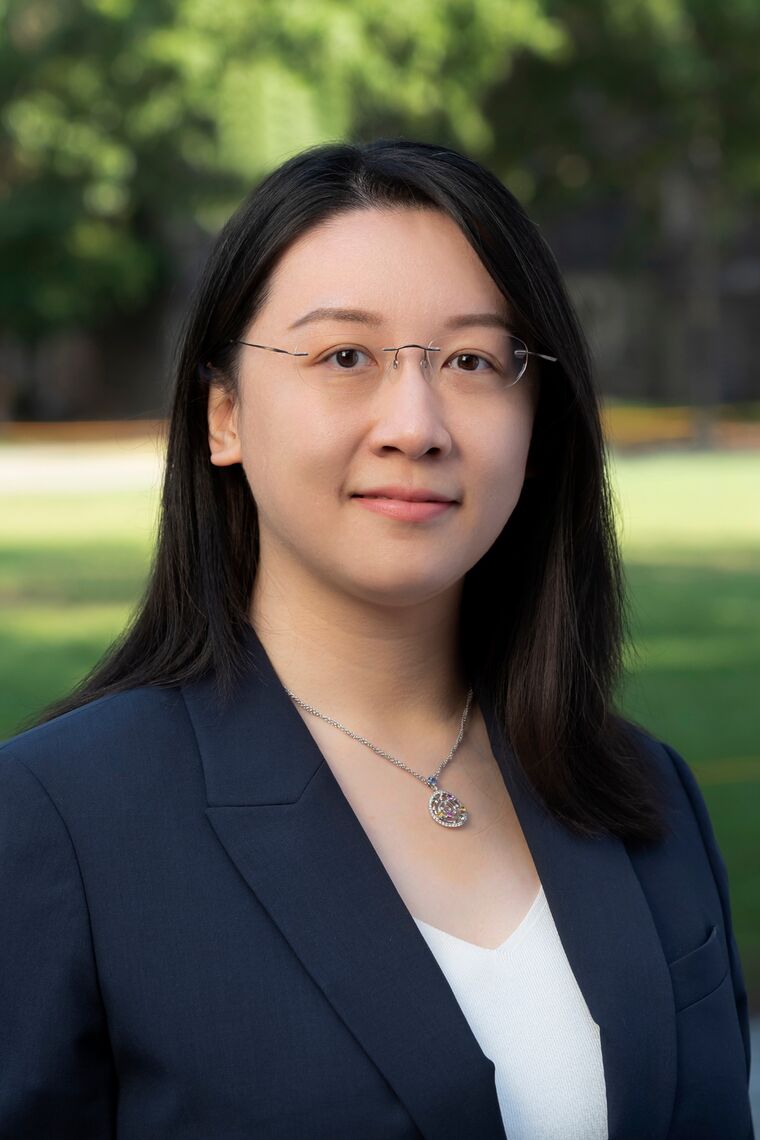Health Policy Research Seminar: Kelly Yang, PhD, MA, Assistant Professor of Business Economics and Public Policy, Indiana University
12:00pm - 1:00pm • 1104 Blockley Hall
2024-10-24 12:00:00 2024-10-24 13:00:00 America/New_York Health Policy Research Seminar: Kelly Yang, PhD, MA, Assistant Professor of Business Economics and Public Policy, Indiana University Event Details: Date: Thursday, October 24th Time: 12:00 PM - 1:00 PM Location: 1104 Blockley Hall (Note: Virtual attendees can join by accessing this link: https://upenn.zoom.us/j/95353951407.) Topic: "Experience Effects and Technology Adoption: Evidence from Aortic Valve Replacement." Lunch will be served. Please view here for the full Fall 2024/Spring 2025 Health Policy Research Seminar Series Schedule. Bio: Dr. Kelly Kaili Yang is an Assistant Professor of Business Economics and Public Policy at the Kelley School of Business, Indiana University. She received her PhD in Economics from Duke University. Her research interests include Industrial Organization, Health Economics, and International Trade, with a focus on technology adoption and quality upgrading. Abstract: There have been concerted efforts in the medical profession to centralize certain surgical procedures in hopes that patients can benefit from treatment at hospitals with extensive experience or recent practice. In 2012, the Centers for Medicare and Medicaid Services (CMS) introduced minimum volume requirements that hospitals must satisfy to receive reimbursement for a new surgical procedure, transcatheter aortic valve replacement (TAVR). I examine the desirability of this regulation and the trade-offs that CMS faces between enhanced learning-by-doing, reduced patient access to hospitals offering TAVR, and fixed adoption costs. Using Medicare claims data, I find that doubling hospital experience reduces TAVR in-hospital mortality by one-sixth. I then develop and estimate a dynamic industry equilibrium model with learning-by-doing, patient choice, and hospital TAVR adoption. Counterfactual simulation shows that removing the policy restriction would have increased adoptions at hospitals that are relatively less desirable to patients. Further, this small access gain would be offset by reduced learning-by-doing and higher mortality. Overall, relative to the free-adoption counterfactual, the current Medicare policy achieves the same technology utilization and total consumer welfare with 13% lower fixed costs, thus improving social welfare. 1104 Blockley Hall Penn Medical Ethics
Event Details:
- Date: Thursday, October 24th
- Time: 12:00 PM - 1:00 PM
- Location: 1104 Blockley Hall (Note: Virtual attendees can join by accessing this link: https://upenn.zoom.us/j/95353951407.)
- Topic: "Experience Effects and Technology Adoption: Evidence from Aortic Valve Replacement."
- Lunch will be served. Please view here for the full Fall 2024/Spring 2025 Health Policy Research Seminar Series Schedule.
Bio: Dr. Kelly Kaili Yang is an Assistant Professor of Business Economics and Public Policy at the Kelley School of Business, Indiana University. She received her PhD in Economics from Duke University. Her research interests include Industrial Organization, Health Economics, and International Trade, with a focus on technology adoption and quality upgrading.
Abstract: There have been concerted efforts in the medical profession to centralize certain surgical procedures in hopes that patients can benefit from treatment at hospitals with extensive experience or recent practice. In 2012, the Centers for Medicare and Medicaid Services (CMS) introduced minimum volume requirements that hospitals must satisfy to receive reimbursement for a new surgical procedure, transcatheter aortic valve replacement (TAVR). I examine the desirability of this regulation and the trade-offs that CMS faces between enhanced learning-by-doing, reduced patient access to hospitals offering TAVR, and fixed adoption costs. Using Medicare claims data, I find that doubling hospital experience reduces TAVR in-hospital mortality by one-sixth. I then develop and estimate a dynamic industry equilibrium model with learning-by-doing, patient choice, and hospital TAVR adoption. Counterfactual simulation shows that removing the policy restriction would have increased adoptions at hospitals that are relatively less desirable to patients. Further, this small access gain would be offset by reduced learning-by-doing and higher mortality. Overall, relative to the free-adoption counterfactual, the current Medicare policy achieves the same technology utilization and total consumer welfare with 13% lower fixed costs, thus improving social welfare.